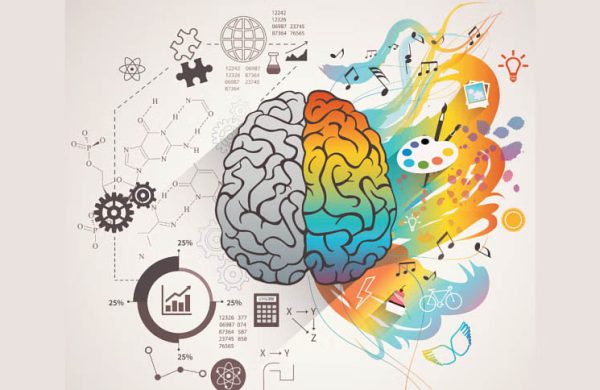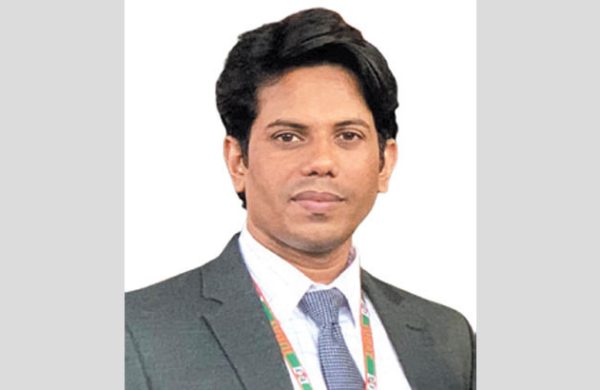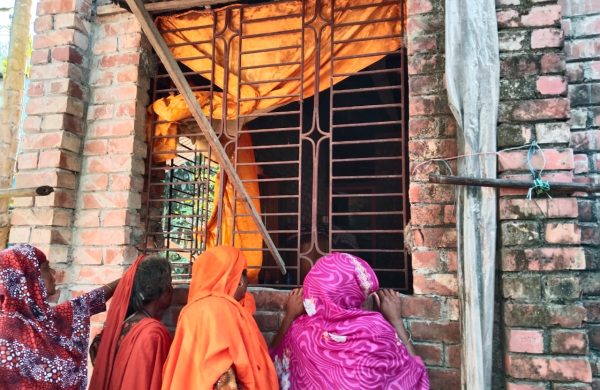A mind at risk: We must prioritise neurological health across all ages
- Update Time : Tuesday, July 22, 2025

—Tahseen Nower Prachi—
Imagine you’re an average Bangladeshi son or daughter, rushing your father, now in his mid-fifties, to avail urgent medical attention, after he was diagnosed with a migraine only the day before. By the next day, he stops responding. There is a body, a head; but the sense, the presence, is gone.
After running from facility to facility, you manage to save him, but the damage is done. Lack of awareness, confusion, and delay nearly took a precious life, making you experience the fear of a lifetime.
I LIVED THIS FEAR
However, miracles do take place at times. My father survived a severe subdural haematoma, thanks to quick intervention. But others may not be so lucky. While preventable, tragedies like this are far too common in Bangladesh, where brain health awareness remains dangerously low.
This year’s World Brain Day theme, “Brain Health for All Ages,” holds special significance for Bangladesh, where simply staying alive is challenging.
The myth that neurological disorders affect only older adults is rapidly being disproven. All age groups face fatal neurological conditions, such as stroke, aneurysm, brain haemorrhage, dementia, and epilepsy. Globally, over 40 percent of the population was affected by neurological conditions in 2021, according to the Global Burden of Disease Study. In Bangladesh, the burden is rapidly growing.
Stroke alone accounts for a significant percentage of adult mortality in the country. The National Institute of Neurosciences and Hospital (NINS) estimates that over three lakh strokes occur annually in Bangladesh, many among people in their 30s and 40s. Risk factors include hypertension, diabetes, smoking, obesity, and air pollution—all increasingly common due to urban stress and lifestyle habits.
But strokes are only one piece of the puzzle. Aneurysms and haemorrhages strike suddenly. Dementia and Parkinson’s disease are on the rise among older adults, while children suffer from epilepsy and neurodevelopmental disorders.
Mental health conditions, such as anxiety and depression, which often begin in adolescence, are also neurological, and are heavily underdiagnosed.
Brain health isn’t just a concern for the elderly. In early childhood, poor maternal nutrition and infections can cause lifelong damage. Teenagers increasingly face mental health crises and learning disorders. Adults are vulnerable to stroke and traumatic brain injury. And seniors face the growing threat of dementia.
One of the most dangerous aspects of neurological diseases is how quietly they progress. Many Bangladeshis don’t recognise early stroke symptoms, such as slurred speech, confusion, and drooping face, until it’s too late. Cultural stigma around mental and cognitive disorders delays treatment even further or leads to it being avoided altogether.
The lack of awareness results in delayed diagnoses and inadequate care. According to data from the Bangladesh Society of Neurosurgeons, the country has fewer than 300 trained neurosurgeons and neurologists for a population of over 17 crore. Access to quality neuro care is heavily concentrated in Dhaka, leaving rural patients at the mercy of slow referrals and limited diagnostic tools.
Still, much can be done—starting with awareness. Lifestyle changes such as regular exercise, a balanced diet, avoiding tobacco and excessive salt intake, and managing hypertension can significantly lower the risk of stroke and haemorrhage. For children and teens, early screening, better nutrition, and mental health education are key. Schools, workplaces, and communities must lead awareness efforts. Campaigns should be age-specific, encouraging seniors to track memory loss, teens to speak up about stress, and adults to prioritise preventive health checks.
Institutes such as the National Institute of Neurosciences & Hospital (NINS), Bangladesh Medical University, and the Diabetic Association of Bangladesh (BADAS) are doing important work, but they need more funding, collaboration, and reach. Even access to essential neuro medications remains inconsistent, especially for conditions like Parkinson’s, where specific drugs are often out of stock.
Prof Dr Md Nazrul Hossain, head of neurosurgery at ICHRI, BIRDEM, said widespread misconceptions are delaying life-saving care. “Most people still think stroke is a heart issue. So when someone shows classic stroke symptoms, facial drooping, slurred speech, they’re rushed to cardiac hospitals instead of stroke units.”
This mistake often causes patients to miss the critical window for thrombolytic therapy, which can prevent disability or death if administered early. Meanwhile, many live with uncontrolled hypertension and diabetes, major risk factors for stroke, without realising the consequences, he said.
Misunderstandings go beyond stroke. Symptoms of aneurysms, like sudden headaches and vomiting, are often misread as gastric issues or migraines. “In rural areas, stigma is stronger,” said Dr Nazrul. “Epilepsy or psychosis is seen as taboo. Families often hide these cases instead of seeking treatment.”
To improve outcomes, health education must come first. “We need community-level awareness campaigns focused on stroke, epilepsy, and neurodegenerative disease,” he opined. “Reducing stigma is essential.”
Dr Nazrul also noted that neurology services have improved significantly, but public perception lags. “People still believe good care is unavailable or unaffordable. We must change that mindset and encourage timely care-seeking.”
Systemic gaps also persist. There’s no clear referral pathway. As he suggested, a structured system, from rural health workers to specialised neuro centres, can reduce delays and ensure proper treatment. Research is another weak spot. “We didn’t even know our dementia prevalence was 8 percent until a recent icddr,b study,” he said. Moreover, without local data and culturally grounded research, interventions will fall short.
Improving brain health in Bangladesh requires urgent collective action. Awareness campaigns must reach every community, ensuring people recognise the signs and risks of neurological disorders. At the same time, the healthcare system must grow—training more neurologists, neurosurgeons, and rehabilitation specialists to deliver timely care. Research must be prioritised, focusing on Bangladesh’s unique disease patterns, lifestyle factors, and healthcare gaps. A robust emergency response system, especially for stroke and trauma, is vital to save lives during critical windows.
Neuro screening should also become part of regular primary care. Early detection must become the norm, not the exception, as this is not just a health issue. It is a national priority to protect the cognitive well-being, dignity, and future of millions.
As World Brain Day reminds us—brain health is not a luxury. It is essential for learning, working, and ageing with resilience and dignity. Every Bangladeshi, regardless of age or income, deserves the chance to protect and preserve their brain.
——————————————————————————————
Tahseen Nower Prachi is a development communication professional, and an aspiring researcher. She can be reached at [email protected].



















